History
OUR FOUNDER, RENE PECHARD
The history of Children of the Mekong starts like a fairytale. “Once upon a time…” a dentist in Vientiane takes in two street children who he finds on his doorstep. They are hungry and can’t go to school. Believing that ‘there’s much more joy in seeing a child at school than in the street’, Rene Pechard decides to help them and enrols them in a boarding school in Xiang Khouang called St Joseph’s. Christmas and the New Year are just around the corner. Wanting to do more for the children’s school, Rene Pechard asks French blanket manufacturers if they can help. They respond by sending him 100 francs and blankets for the children, and this act of generosity leads to the founding of The Association of Friends of St Joseph’s School. Eventually, the organisation evolves into “Children of the Mekong”.
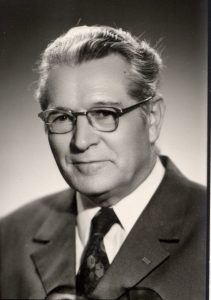
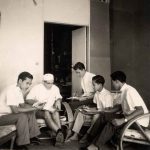
THE ASSOCIATION WHICH STARTED IT ALL IS ESTABLISHED IN LAOS
Rene Pechard, a French dentist living in Vientiane, establishes the Association of Friends of St Joseph’s in 1958. At the time, it was called the Association for the Protection of the Children of Laos. Its goal is to help orphans. Appeals for a sponsorship programme, largely within the French dental surgeon community, enable children to benefit from a “scholarship” as well as a “maintenance grant” for the poorest amongst them.
THE FIRST FOSTER HOMES OPEN IN ASIA, IN VIENTIANE
In 1964, the organisation opens the first of several foster homes in Vientiane, welcoming Laotian, Vietnamese, and Eurasian orphans or children from very poor families. Some are sent to France to study and live with host families.
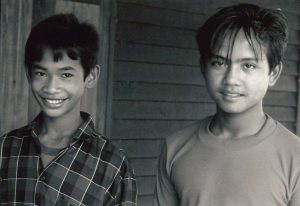
ASPEL FRANCE IS ESTABLISHED
In 1968, Rene Pechard establishes the Association for the Protection of Children – France (Appel France, now called Aspel). The sponsorship programme, in which sponsors help Laotian children by giving them a grant or welcoming a young person into their home to study in France, could now begin.
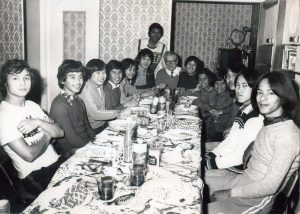
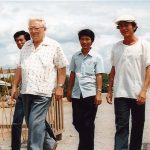
WAR BREAKS OUT IN CAMBODIA, VIETNAM, AND LAOS. THE FIRST REFUGEE CAMPS ARE SET UP. AID PROGRAMMES BEGIN IN THAILAND
War breaks out in Laos, Cambodia, and Vietnam, and Rene Pechard is forced to abandon the foster homes in Vientiane in August of 1975. Refugees fleeing to the camps in Thailand arrive with next to nothing and need a huge amount of support. The sponsorship programmes become more generalised, enabling children to purchase clothes and school supplies. The first schools are built, and local initiatives receive our help (this is one of Children of the Mekong’s enduring systems of support).
THE FIRST FOSTER HOME FOR REFUGEES IS OPENED IN VALENCE (FRANCE)
In response to the number of refugees arriving in France, Rene Pechard opens a foster home in Valence in 1977. That year, Aspel is officially named Enfants du Mekong (Children of the Mekong).
AID PROGRAMMES BEGIN IN VIETNAM
DEATH OF RENE PECHARD

FIRST SCHOOL SPONSORSHIPS IN VIETNAM
In order to continue Rene Pechard’s work (who died in 1988) and to support refugees returning to their respective countries, the association establishes its first sponsorship programmes in Vietnam and Cambodia in 1990. Today’s sponsorship programmes began in this way.
THE FIRST OVERSEAS VOLUNTEER MISSIONS TAKE PLACE
The aim of the overseas volunteer missions is to send young men and women between the ages of 21 and 35 to Southeast Asia to help the poor.
CHILDREN OF THE MEKONG IS AWARDED FRANCE’S HUMAN RIGHTS PRIZE
AID PROGRAMMES BEGIN IN CAMBODIA
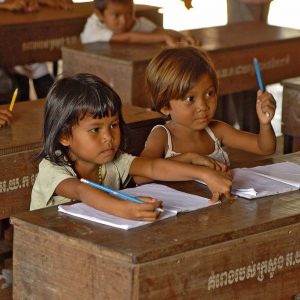
TWO NEW FOSTER HOMES IN FRANCE OPEN THEIR DOORS TO ASIAN STUDENTS: THE MARCEL VAN AND SAINT GREGORY HOMES
AID PROGRAMMES BEGIN IN THE PHILIPPINES
AID PROGRAMMES BEGIN IN MYANMAR
TSUNAMI IN SOUTHEAST ASIA
Following the devastation caused by the tsunami on December 26th 2004 on the Southeast Asian coast, Children of the Mekong joins in the rebuilding effort thanks to the financial support of thousands of donors. The association is part of the ‘Partnership of Asian Children Separated from their Families’. The number of new sponsors soon exceeds what can realistically be managed in the country by any non-profit other than emergency organisations, so the sponsors’ generous donations are extended to thousands of children in Laos, Cambodia, the Philippines, and Vietnam. A total of 5,100 new sponsored children are sponsored in 119 new sponsorship programmes throughout Southeast Asia.
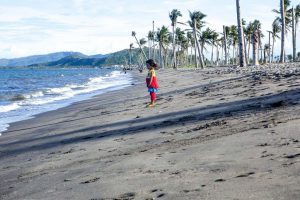

PROGRAMME BEGINS IN CHINA (YUNNAN)
In March 2008, a new sponsorship programme is established in the far north-west of Yunnan, at the borders of Tibet and Myanmar.
50 YEARS’ ASSOCIATION WITH UNESCO
On the anniversary of its foundation, Children of the Mekong celebrate “50 years of sponsorship hope” at UNESCO. It gathers together people working in diverse ways in the fundraising sector to reflect upon what is essential to an organisation such as ours: “Donations: Humanity’s unlimited resource.”
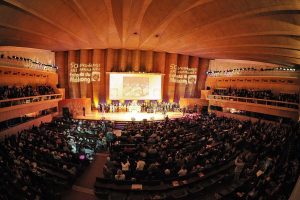
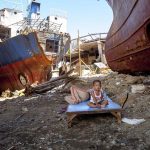
TYPHOON HAIYAN IN THE PHILIPPINES
On November 8th 2013, one of the most powerful typhoons in history devastated the Philippines. Winds up to 300km an hour and waves 3 to 5 metres high took just a few hours to destroy thousands of fragile homes and lead to the evacuation of millions of people. Children of the Mekong quickly joined in the rebuilding effort. Thanks to our donors and to our local network, we were able to help close to 2,100 families in 30 of the worst-affected areas. Three dedicated volunteers worked on these projects.

THE ORGANISATION CELEBRATES 60 YEARS
To celebrate its 60th anniversary, Children of the Mekong launched itself into an amazing adventure: the filming of ‘When I grow up’. The film’s goal is to give viewers an insight into the daily lives and dreams of six children from six Southeast Asian countries and to raise as much awareness as possible to their plight and to what an education means to them. The talents of film director Jill Coulon, musicians Yael Naim and David Donatien, and the film production company Aloest, all contributed to this grand adventure.
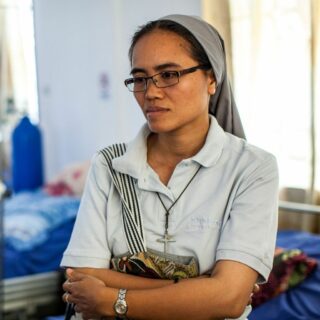
CHILDREN OF THE MEKONG PROGRAMME MANAGER IN VIENTIANE, LAOS.
“My name is Sister Latsamy. I am 38 years old and I have been responsible for the Nazareth foster house in Vientiane, Laos for more than three years. I often heard the name COTM said by the Sisters of Charity. They love saying this beautiful name. One day I asked, “What does COTM mean?” One of my colleagues who worked with the organisation explained, “It’s Children of the Mekong: an organisation which supports poor but motivated children who want to go to school and seek a better life”. Among my colleagues (the first to have collaborated with Children of the Mekong in Laos from 1958), some knew Mr Péchard well. Sister Blandine, who has lived with me for two years, told me one day, “He was a very good doctor. He loved children and has helped many in his time”. I take great joy in working with Children of the Mekong. In the beginning, I thought it was an organisation which offered only financial support but I now know today that it is much more than that: Children of the Mekong really shoulders the responsibility of education for children and young people. Our great joy is to see our young people blossom and make progress every year. Together, we continue our path to accompany our young people to live in our society!”
Sister Latsamy
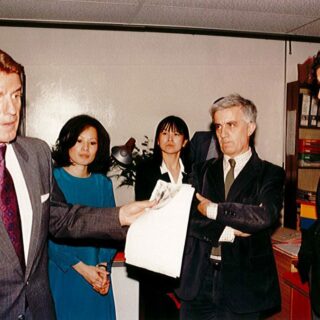
“Children of the Mekong runs deep in my family. My brothers grew up at the foster house in Vientiane, the capital of Laos when the charity was still called ASPEL (set up by René Péchard in 1958). We lived in Laos and the secondary school in our town did not go beyond Year 12. To carry on studying and take A-Levels (le Baccalauréat) you had to move to the capital. My parents continued to support Péchard’s work until 1972 when we left Laos. We got back in touch with him in 1984 when Children of the Mekong moved its headquarters to Asnières, Greater Paris. My sisters and I volunteered there, doing a bit of administrative and technical work. The following year I was invited by René to join the permanent staff, where I remained until 2011. To start with, there were just ten of us. We got on together so well that we could sometimes read each other’s thoughts. There was a huge amount to do but we were all committed to helping the children of Southeast Asia. I had seen so many young people in Asia having to toil in terrible conditions just to scrape a living, scavenging on waste tips for example, that I was delighted to be helping them to get an education. So many children would never have been able to go to school or to remain in education, were it not for the support of their sponsors and of Children of the Mekong!”
Julie Gervais
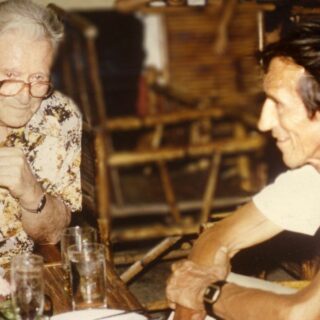
“Of all those most stricken by poverty in the world, it was to refugees in Southeast Asia that René Péchard devoted himself, and in particular to children – the children of the Mekong. In them he found himself; in them lay his pathway to God. He felt their anguish and took to heart their exclusion. He reached out to them; upon them, he focused his attention. He was indeed a man who ‘walked with the poor’.
René Péchard lived to serve others. He possessed infinite goodness that he tried to conceal (without success?) beneath his great modesty and shyness that sometimes made him seem a little gauche or embarrassed. It was there for all to see in his magnificent smile, which was so warm and so comforting that it will never be forgotten by the children of the Mekong he loved so much, and to whom he gave all that he was and all that he had.”
Taken from an article published in Enfants du Mékong Magazine n°43, January – March 1989.
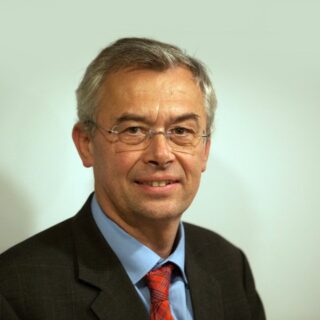
“Children of the Mekong has the good fortune to have been blessed with a soul by its founding father. Humble and discrete, he was dedicated to helping children – recruiting sponsors, backing projects initiated by a wonderful network of supporters, and creating infrastructure back in France. In 1990 another link was added to the chain: overseas volunteers. All of the links in this chain of trust share a single goal: to improve the lot of children in Southeast Asia. For the last 30 years, it has been my joy and privilege to see the chain flourish, link by link, and to know that the soul of Children of the Mekong still shines as brightly as ever.”
Gérard Duquesne
RENÉ PÉCHARD: A MAN OF VISION
When he visited Thailand for the last time in 1985, René Péchard, affectionately known to all as Uncle (Tonton), aware that he was becoming weaker, made a cassette recording which was later discovered in his desk drawer. Published when he died a few years later, the extract below can be viewed as a testament in which the founder of Children of the Mekong articulates his vision – an enduring vision which lives on to this day, 30 years after his death.
“[…] That is in the past; let us look to the future. Children of the Mekong started in Laos but it must continue to support children of the Mekong wherever they are. The mighty Mekong flows for many, many miles, so the task is daunting. First and foremost we must continue to support refugees from what was French Indochina, as we have done since 1975. There is still much to do, but we will get there one day. We have begun to help children in Thailand and must continue to work there. The tourists see only the bright side of the coin; they do not see what lies on the other side. They do not see the orphans – poor but not necessarily completely destitute – who cannot afford to continue their studies, however brilliant they may be. If we take under our wing poor children that we encounter we should certainly ask their parents to contribute, however little – be it only one thousand of the 15 to 20 thousand bahts that it may cost to look after and educate a child. When the circumstances are right I see no reason why we should not in the future also support children in Laos, Cambodia and Vietnam.
In addition to supplying direct aid, we need to consider specific projects (like schools for orphans) of the kind that we have up to now undertaken in refugee camps.”
Tonton, Korat, 8 January 1985
*Article first published in Enfants du Mékong Magazine n°42 October, November, December 1988.
The mighty Mekong flows for many, many miles, so the task is daunting.
“It is because we have faith in love because we have never given up hope – that ‘little girl called Hope’ beloved of Péguy [French poet and essayist] – even in the hardest of times, that our message has spread far and wide… ‘What is your secret?’ we are asked. But it is not our secret. Faith in love is now the ‘secret’ of thousands of our supporters. They are as much Children of the Mekong as I am, if not more so. They have been my inspiration whenever exhaustion or anxiety has threatened. Their cheerful letters, and the great pleasure they have found in our common cause, are what have kept me going.”
*From an interview with René Péchard in the book Les Enfants du Mékong by JC Darrigaud, Edition Fayard.
